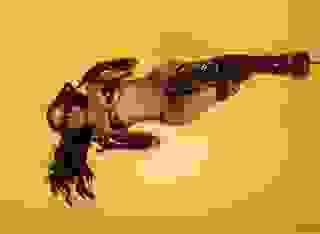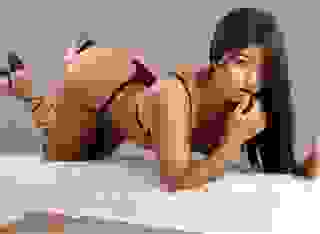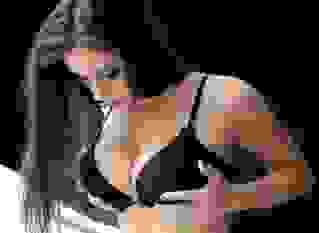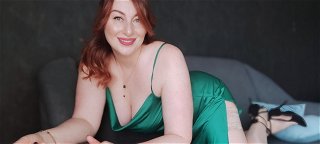- Novels and Novellas
- Cassandra's Plan Ch. 06
Note: You can change font size, font face, and turn on dark mode by clicking the "A" icon tab in the Story Info Box.
You can temporarily switch back to a Classic Literotica® experience during our ongoing public Beta testing. Please consider leaving feedback on issues you experience or suggest improvements.
Click hereLauren Oxley / March 18, 1986, 5:12 p.m.
"Hi, Lauren. It's good to see you again."
"Good to see you, too, David."
"It's been a while. Hasn't it? Almost a year."
"Yes, I suppose so. I've been really busy."
"That's good, I guess." He stops abruptly, then, as if to fill up the silence: "That's good."
I look up at him over my coffee. "I'm sorry I haven't called. You know I feel funny about calling you at home. You could have called."
"I know. I should have. I've been pretty busy too."
"Writing?"
"Yeah. Writing."
He's not drinking his coffee, just stirring it around.
"Why did you want to see me, David?" I say after a long silence.
"Do we have to have a reason? You're my oldest friend—my best friend, too, I guess."
"What about Mike?"
His face clouds over. "I'm not in touch with Mike much. He doesn't like writing letters. In fact, I haven't really heard from him in three or four years."
"Really?" I'm rather dumbfounded. "You were so inseparable in high school." Except when I was there.
"I know. That was a long time ago." He looks up from his coffee, but not at me. He stares out the window of the coffee shop. "A long time ago."
I try to make a go of it. "Well, it's nice to see you again. It really is."
"It's nice of you to see me." Now he does look right at me. "Lauren, I'm really glad we've become friends again. You don't know how much it means to me."
"Oh, that's okay." I hope he doesn't get weepy. I don't think I could deal with that.
But he's not finished. "Those three years you wouldn't speak to me were the longest of my life—they really were, Lauren! I felt awful."
"You had . . . your wife." I can't seem to say her name.
"Yeah, sure, I did." He looks back at his coffee. He hasn't drunk any of it; it must be cold by now.
"And still do."
"Still do."
He sighs heavily, then says in an unexpectedly loud voice: "And how about you? Are you seeing anyone?"
I know this is his way of trying to turn the tables, but I'm too tired to resist. "No, not just now. I don't seem much interested."
"Not interested? You, a lovely, bright young woman like you? There must be lots of men banging at your door—"
"I said I wasn't interested, okay?" I don't mean to say it so loud, but I can't help it.
He realizes that this is a subject not worth pursuing, so he shuts up. For one fleeting instant I hate him. But then it's gone.
"How's your job?" he asks.
"Okay."
"You're still at the same place? The physics department at NYU?"
"Yes."
"Gee, physics . . . I never thought you'd get into physics."
"Oh, David, you don't need to know anything about physics to be the secretary of the department. It's easy."
"You've been doing that for years, haven't you?"
"Yes."
"Ever since . . ."
"Yes. Ever since I left Barnard."
He actually takes a sip of the coffee, but finds it stone cold. He grimaces and puts the cup back down. Gently he says:
"Are you satisfied with that? Is that what you want to do for the rest of your life?"
I'm sure he doesn't mean it to sound sarcastic, but it does. "No, David, it's not what I want to do for the rest of my life. But it's fine for now. It doesn't take any effort."
"Maybe you could take classes and learn some other skill . . ."
"Maybe."
I guess I shouldn't be so short with him, but he's now sounding really patronizing. What's he done with his life, anyway? But I do feel a little guilty, so I say:
"I'm sorry, David. I'm just a little tired."
He doesn't respond immediately. Then he looks me in the face and says: "Lauren, you had so many dreams. Maybe we all did, and maybe a lot of those dreams were crazy, but you weren't like this. There were so many things you wanted to do in life. What happened to your singing? You were such a good singer . . ."
"I wasn't that good."
"Sure you were!" he says with a mixture of enthusiasm and scolding. "I heard you that Easter back home in the church choir. That Fauré solo you did was superb! You had a magnificent voice! Still do, probably."
"I don't sing much now." I wish this conversation were over.
"Why not take lessons?"
"Lessons are expensive."
"Couldn't you get a discount with someone who teaches at NYU? You're staff there, after all." He sounds almost frantic.
"David, it doesn't work that way. Private lessons are private lessons. There's no discount."
Almost sheepishly he says: "I could give you some money. A gift, not a loan. You never have to pay it back. I'd just like to hear you sing again."
I look up at him. He has that same boyish eagerness on his face that he's had ever since I've known him, but now there's a tinge of something else—a kind of fear or guilt or agitation or something—that makes him look like a gorgon.
I put my hand over his. "That's really sweet, David, but I just don't think I want to do that. I don't want singing lessons, and I don't want your money." As he looks away from me I add: "But it's very nice of you to offer. There's no one like you, David."
I hope I'm not seeing tears well up in his eyes. I don't want to see that.
He gets up abruptly. "I—I guess I'd better go home. Dinner will be ready soon."
I get up too. "It was good to see you again, David."
"Yeah. Good to see you too, Lauren."
"Can we stay in touch a little more now?"
"Yes. Yes, of course. We'll do that."
Will we, I wonder.
David Phillips / August 12, 1989, 2:16 p.m.
It seems heartless to say so, but it astounds me that there are tears in Cassandra's eyes.
I've never seen such a big funeral. It's almost as well attended as our wedding. Different crowd entirely, of course—scarcely anyone under fifty. Either the Connollys were very well known or a lot of people in this set feel the social necessity to make an appearance.
I should try to console Cassandra, but I'm still trying to take in the fact that she's so wrought up. Oh, sure, her parents' death couldn't have been pleasant—they had trouble even finding the bodies after their yacht capsized in Rhode Island Sound—and the suddenness of it was startling. But still . . .
Cassandra hated her parents so much.
Well, maybe not hated. But she did seem to take a perverse delight in tweaking their noses. Bringing me over to spend that summer with them so many years ago was one of her more brilliant tactics—she seemed, at any rate, pretty delighted with the result.
We've hardly had anything to do with them for the last eight years—Cassandra saw to that. They didn't complain too much when she demanded that we get a place of our own after we were married; I'm sure they would have preferred us to stay with them, but maybe they realized they couldn't expect that. And the place on East 85th Street was certainly more than anyone could have asked for. They didn't go there much, however.
Here's Jenyns. He's the only one who doesn't seem unruffled by things—not even sweating in this incredible heat. But wait—am I doing him a disservice? Are his eyes actually rimmed with red? His jaw seems tight too. Cassandra comes up to him and actually throws her arms around him, sobbing. It's like he's her uncle or something. Maybe he is, in a way.
The ceremony proceeds with appalling formality. I'm becoming a little dizzy—from the heat, from the droning of the preacher, from the rustling of all this expensive mourning attire, from the fact that Cassandra is actually clinging to my arm in a kind of desperation. I can't convince myself that this is really happening.
I think back to yesterday. Four of us in a little room—one that I didn't even know existed—back at her parents' place on East 68th Street. Cassandra, Jenyns, some lawyer whose name I have already forgotten, and me. That fellow droned pretty much like this cleric up there.
"Miss . . . Mrs. Phillips"—he seems to have a little difficulty with that—"may I ask what disposition you intend to make of this residence?"
Without hesitation Cassandra says: "Why, we'll live here, of course!"
I turn to look at her in amazement. "Wh-what are you saying?" I sound like a scared little boy.
She looks me right in the face. "David, this place has been in our family for three generations. Do you think we're just going to give it up?"
She seems to expect me to respond, but there's nothing to say. Meanwhile the lawyer looks at her with a certain placid satisfaction.
He tells Jenyns about a pretty substantial legacy he has been left, and asks if he wishes to continue service or to retire. "The former," is all he says. Cassandra places her hand on his arm and actually gives him a little peck on the cheek.
"That's settled, then," she says, looking around as if daring anyone to contradict her.
I don't take up the matter with her until a few hours later, when we are back in our place.
"Cassandra, maybe we could have come to this decision jointly? Don't I have a say in things?"
She gives me a look as if I'm an especially slow preschooler. "Darling, there was no decision to make! You want me just to sell that brownstone that Connollys have lived in for a hundred years? David, it's our home."
I look at her querulously. "But somehow I thought you didn't like the place. God knows you were in a hurry to get out after we were married."
She turns away. Not even she can come out and say what she's thinking. It's not that I didn't like the place—only some of the people in it.
Well, I guess maybe it'll be for the better. Certainly that other place has more room. I may need a blueprint to find my way around it, though. I don't remember it very well from my stay nine years ago, and anyway I spent most of my time then in Cassandra's bedroom.
Maybe there's a room there where Cassandra can't find me.
David Phillips / March 22, 1991, 5:43 p.m.
I delete the file.
It isn't quite as satisfying as ripping the sheet out of the typewriter, crumpling up the paper into a little ball, and hurling it into the wastebasket, but it serves the same purpose. More ecological, too, since I hadn't bothered to print out the wretched mess of hash.
I get up from the computer. The blank black screen seems somehow more ominous-looking than the virgin white of a sheet of paper in a typewriter. And that damned little flickering cursor at the top corner of the screen: waiting in impatience for me to begin writing something—anything; winking at me as if it knows some secret about me that I don't know myself; laughing at me for my impotence.
God, I sound like a bad novelist. Which is, I guess, what I am.
The door opens. I hear Cassandra's resolutely cheery voice. "David, dear, I'm home! Are you in the study?"
For one crazy instant I don't want to answer; want to hide in the closet so that she doesn't find me. But it's useless. "Yes, I'm in here."
She stalks in, throwing off her fur wrap—little warm for that, isn't it?—and marching up to me. She gives me a little peck on the cheek. (What happened to the kisses on the lips we gave each other every time we went out or came back?) I'm standing by the computer. She looks at me, then at the blank screen, then back at me. She has a wary look on her face, as if I'm somehow trying to trick her.
"Guess you're taking a break, eh?"
"Eh."
She chooses to ignore that bit of sarcasm. "Well, I guess you've gotten a lot done before. You haven't stayed in the whole day, have you?"
"No, I haven't stayed in the whole day. I took a little walk earlier. And no, I haven't gotten much work done."
She sits down on the couch next to the desk. She says nothing, just looks up at me with a kind of glance an entomologist might give to a new species of insect.
"What's the matter, babe? Is the novel stuck?"
I almost want to do violence to her. "No, the novel isn't stuck. I'm stuck. The novel isn't anything. It isn't going anywhere. It may never go anywhere." I sit down heavily at the opposite end of the couch from where she is sitting. I feel suddenly exhausted.
She moves a little closer to me. "Babe, you were so confident about this one. So excited! What happened?"
"I don't know what happened. It's just like all the others. The other four novels that I actually finished. They really don't go anywhere, either."
She gets suddenly angry—not at me, though. "Well, why doesn't your fucking agent do something with them? Maybe you should dump him and get someone else."
"I'm surprised he hasn't dumped me. I don't bring him any money. Writing reviews for the Voice and landing a story once in a blue moon isn't exactly the most lucrative job in the world."
I get up and walk about the room. It's a big room. When people are at the opposite ends of it one almost has to shout to be heard, but somehow I say in a whisper, "Maybe I'm just no good, Cassandra."
Soft as that is, she's heard. Maybe she was expecting it.
She leaps up from the couch and stalks over to me. I wonder whether she'll slap me in the face, as if I've insulted her. But she only hisses: "David Phillips, don't you dare say that! Don't ever say that!" She wheels around, almost as if looking for something to hit or throw. "Look, you have a book published and a bunch of short stories and articles and reviews, and you're only thirty-two. That's pretty good, isn't it?"
I laugh shortly. "A critical study of James M. Cain doesn't exactly make me God's gift to literature. Especially when it's only sold about two thousand copies."
"Well, why the hell didn't you take it to a trade house instead of a university press? Those places only sell to libraries!"
"No one else would take it, sweetheart. Don't you remember how many publishers we tried?"
"Oh . . ." She spins around again like a top. I have a momentary fear that she's going to run amok.
But she settles down. "Look, guy, you're good and you know it. I know it. I wouldn't have married you if you weren't. I don't marry losers." She seems to expect some response from me, but what response can I give? I say nothing. "Maybe you just need to get away for a while. You want to go somewhere? Newport? Maybe London?"
I sigh in weariness. "No. You know I can never write in those places. I don't feel at home there."
"Well, then, where the fuck do you feel at home? Clearly not here!"
I try to calm her down. "I didn't say that. I like it here. It's nice. You're nice. You're wonderful."
Suddenly, in a quiet voice, she says: "Well, you could try showing it sometime."
I say, also quietly: "I do try. You could too."
We stare at each other. I feel as if I should be taking her in my arms, but something prevents me. I don't know what. She doesn't seem to be making any overtures, either. Does she always expect me to?
The moment is lost. Now there's just bitterness and irritation left. An embrace would be a mockery now.
"Look, Cassandra, I'll try again. I'll keep trying. You know I don't give up."
"I know you don't." She's speaking about as quietly as I've ever heard her. Now she seems about to say something that she's almost scared to say. Imagine Cassandra being scared of anything!
"Maybe, David, you could just try being a critic. You're good at that. There's nothing wrong being a critic. Take a break from novels for a while. Write a book of criticism, a biography, something like that."
I know better than to verbalize the subtext: You're a failure as a novelist. Give it up. "Yeah, you may be right. Maybe I'll do that."
"Good." She's perky again. She actually pats my cheek.
"I'll tell Ethel to start getting dinner ready, okay?"
"Okay."
She walks out. I go back to the computer. I turn it off. Still a black screen, but at least no flickering cursor.
Cassandra Phillips / February 12, 1994, 9:42 p.m.
David doesn't touch me any more.
Here I am, sitting on the couch, and he walks in and sits down in the easy chair. There's only space for one there. He gives me this embarrassed smile but says nothing.
This has gone on for a long time.
Oh, I don't mean we don't have sex. Christ, I can't remember the last time that happened. But he literally doesn't even want to come in contact with me. It's like I have some contagious disease—or he does.
Is there such a thing as being married too long? God knows I couldn't conceive of my parents having sex for the last ten or fifteen years of their lives. The way they flew off the handle at my little indiscretions in high school and college, you'd think they had me via test tube.
But we're only thirty-six, for God's sake. Fourteen and a half years of marriage, and it's come to this.
Those first few years were good; damn good. Not just the sex—everything. I took David to places held never been to—Europe, Egypt, even India. He said held work it all into his writing someday. He had a lot of hope then.
But it didn't happen. His novels got rejected, and he took it hard. God, what does he expect?—Few people make it the first time. He was still only a boy then. Christ, most other writers would give their right arms to be in his position: doing whatever he wants all day, not having to worry about money, everything provided for him.
Somewhere along the way he forgot to be grateful to me.
Then he actually gets into little conniption fits whenever we have to go to a formal function. He'd be a lot less uncomfortable if he just worried less about not making a faux pas. Not everyone knows he's from Indiana.
He'd better not be thinking of that girl . . . what's her name, Lauren? I wonder where she is. I was stunned to hear she was staying in the city—I was sure she'd flee back to her cornfields after college. Maybe she has by now. But he's probably forgotten all about her. It was a long time ago.
He rustles the paper he's reading. Somehow I thought held already looked at it this morning.
He doesn't even talk to me any more.
"Anything interesting happen in the world today, dear?" I venture.
"No, not much," he mutters, the paper shielding the entire upper part of his body.
"Would you like to go out for dinner tomorrow?"
He turns a page. I'm sure the noise of it hides a sigh of irritation. "Yes, if you wish, dear."
What do you wish, David? What do you want?
I'm not going to take the blame for this. I've done a lot for him—more than most women would. I'm not clingy, I'm not flighty, I'm not a spendthrift (well, maybe I am—but it's my money), I'm not very demanding. And he found me pretty damn attractive once. I'm still pretty damn attractive, if only he'd notice.
Have I made a mistake? Is this whole marriage a mistake? No, dammit! I want to slap myself in the face. Don't say things like that, bitch. I won him and I'm going to keep him. He knows me—my body, my mind, my whole being—better than anyone ever has. I've never let anybody get this close to me—not my parents, not my friends, no one. He's not going to run off to somebody else, after all that. He's mine.
What did Elaine say the other day?
We're sitting down at a coffee shop near Bloomingdale's. Shopping was exhausting, and we needed a break. Coffee, croissants, cake, the works. Too bad there's no booze here.
I can't believe she married that sap Henry Lockerbee. Maybe she didn't have much of a choice—she was unpleasingly plump even in prep school. And I guess one could do worse than an investment banker, although she has plenty of dough on her own. Her parents will still give her anything. But Henry . . . I shudder even to think of him.
But I have to ask politely: "How are things between you and Henry?"
She shrugs, looks off in the distance. "Okay. Nothing special." She feels she has to say dutifully: "He's a good man."
I want to shake her and say, Cut the crap! But before I have a chance to say anything, she pipes back: "And you and David? Are you doing well?"








